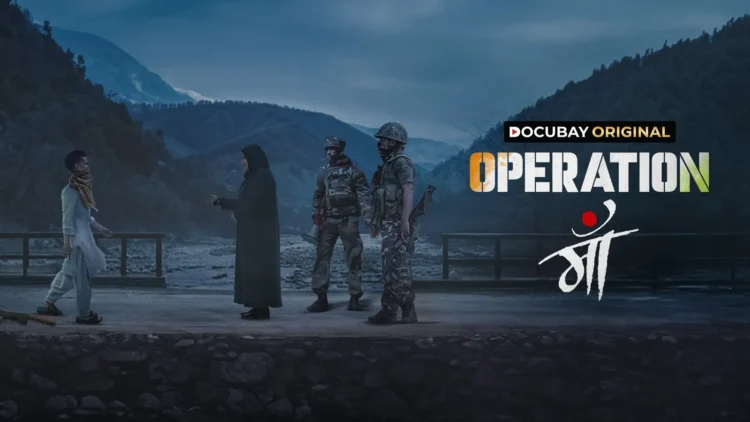DocuBay’s new documentary, Operation Maa, explores a profound and unconventional premise: what if the most potent tool against insurgency isn’t firepower, but a mother’s voice? This compelling film, directed by Tanuj Bhatia and produced by Aditya Pittie and Samar Khan, chronicles a groundbreaking 2019 Indian Army strategy in Kashmir that leveraged the power of maternal love to bring disillusioned youth back from the brink of radicalization. Presented with sincerity and emotional depth, the film is a tightly edited and moving account that champions realism over patriotic fanfare.
The cultural reverence for motherhood in India, famously captured in the line “mere paas maa hai” from the film Deewar, forms the emotional backdrop for this real-world strategy. Operation Maa investigates how this deeply ingrained sentiment was transformed into a practical, life-saving mission, creating a narrative of quiet strength that stands in stark contrast to more aggressive military campaigns.
The architect of this approach was Lieutenant General Kanwal Jeet Singh Dhillon (retd.). As the GOC of the 15th Chinar Corps in 2019, he spearheaded Operation Maa, a mission that shifted focus from confrontation to connection. Instead of solely relying on force, the initiative engaged directly with the families of new militant recruits, believing that a heartfelt appeal from a mother could pierce through radical ideology in a way bullets never could. The guiding principle, inspired by a conversation with PTI journalist Sumir Kaul, was to “kill the idea of terrorism, not the terrorist”—and a mother’s love was seen as the ultimate instrument for this change.
True to the DocuBay style, the film is a taut and focused 50-minute narrative. Director Tanuj Bhatia prioritizes human experience over dry statistics. Thanks to crisp editing by Manvis Jasrotia, the documentary weaves together powerful interviews with the people at the heart of the conflict: mothers consumed by fear, fathers torn by conflict, and the young men caught between extremism and a chance at a new life. The pacing is deliberate, and a minimalist musical score ensures the emotional weight of the stories is never overshadowed.
A notable case highlighted is that of a young Kashmiri footballer drawn into militancy, who was ultimately persuaded to return home by his family’s emotional appeals. While some dramatized reconstructions are used to protect identities, they are a minor concession in a film dedicated to authenticity.
What lends Operation Maa significant credibility is its refusal to offer simplistic answers. The film courageously avoids a one-sided, jingoistic portrayal of the Kashmir conflict. It presents a nuanced reality, even including the candid admission from a former militant that police brutality was the catalyst for his radicalization. The documentary is also honest about the initiative’s limitations, acknowledging that not every attempt to bring a son home was successful and that the region’s deep-seated issues persist.
Ultimately, Operation Maa is not a celebration of military prowess but a testament to the strategic power of empathy. Tanuj Bhatia has crafted a documentary that is both emotionally resonant and intellectually stimulating, offering a thought-provoking look at how a mother’s plea can become a profound force for de-radicalization. You can stream Operation Maa on DocuBay.























